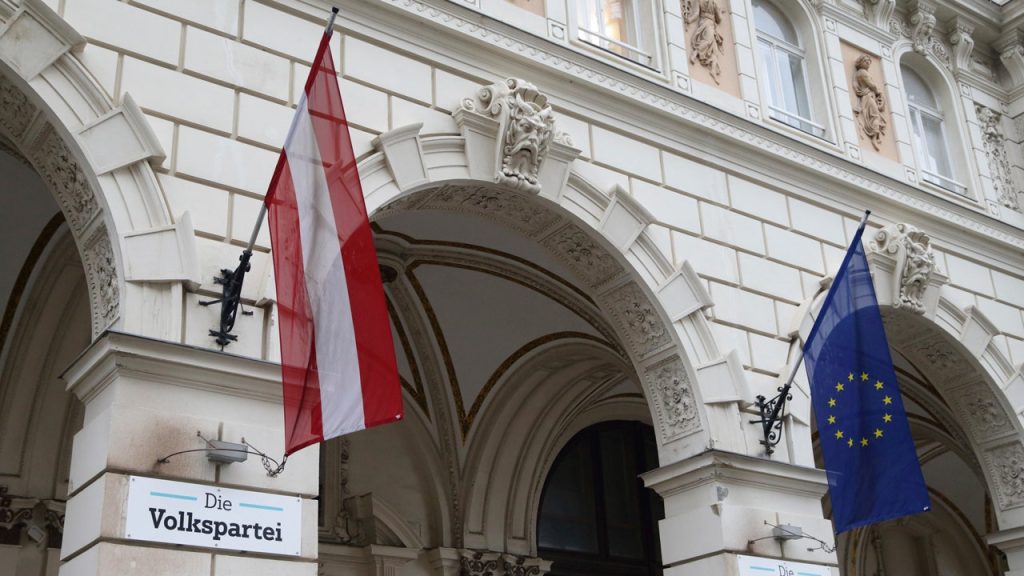The Austrian political landscape is in a state of flux following the collapse of coalition talks between the conservative Austrian People’s Party (ÖVP) and the center-left Social Democrats (SPÖ). Chancellor Karl Nehammer, leader of the ÖVP, announced his intention to resign, triggering a series of events that have brought the far-right Freedom Party (FPÖ) and its controversial leader, Herbert Kickl, closer to power. President Alexander Van der Bellen, tasked with navigating the formation of a new government, has indicated a potential shift in his stance, suggesting a willingness to consider the FPÖ as a governing partner despite previous reservations.
The backdrop to this political drama is the outcome of the autumn national elections, which saw the FPÖ emerge as the leading party with 29.2% of the vote. However, President Van der Bellen initially bypassed the FPÖ, entrusting Nehammer with the task of forming a government due to other parties’ reluctance to collaborate with Kickl. This decision sparked considerable criticism from the FPÖ, with Kickl denouncing the move as illogical and undemocratic. He argued that the FPÖ’s electoral victory warranted the opportunity to lead the government formation process. The recent breakdown of coalition negotiations between the ÖVP and SPÖ has now seemingly forced the President to reconsider his options.
President Van der Bellen’s announcement that he will meet with Kickl signifies a potentially significant turning point. The President explicitly noted that voices within the ÖVP opposing a coalition with the FPÖ, particularly under Kickl’s leadership, have become quieter. This shift in internal ÖVP dynamics appears to have paved the way for a potential ÖVP-FPÖ coalition, a prospect previously considered unlikely due to concerns surrounding Kickl’s hardline stance and controversial rhetoric. While Nehammer himself has ruled out working with Kickl, the appointment of Christian Stocker, the ÖVP’s general secretary, as interim leader suggests a more conciliatory approach towards the FPÖ.
Stocker’s public statements further reinforce this evolving dynamic. He welcomed the President’s decision to meet with Kickl and expressed his expectation that the FPÖ, as the winner of the last election, should be given the mandate to form a government. Stocker also affirmed the FPÖ’s willingness to participate in coalition negotiations if invited, signaling a clear departure from the previous resistance to engaging with Kickl. This represents a notable shift in Stocker’s position, considering his past criticism of Kickl as a security risk to the country. The evolving stance of the ÖVP towards the FPÖ highlights the pragmatic realities of Austrian politics and the potential for shifting alliances in the pursuit of power.
The potential inclusion of the FPÖ in government raises significant concerns given the party’s controversial policies and ideology. The FPÖ’s “Fortress Austria” platform advocates for strict border controls, restrictions on asylum rights, and the “remigration of uninvited foreigners,” reflecting a nationalist and anti-immigration agenda. Furthermore, the party’s stance on foreign policy, including its opposition to sanctions against Russia, criticism of Western aid to Ukraine, and desire to withdraw from the European Sky Shield initiative, aligns it with a pro-Russian position that deviates significantly from the mainstream European perspective. The FPÖ also maintains a historical connection with Putin’s United Russia party, further fueling concerns about its foreign policy orientation.
The unfolding political drama in Austria underscores the broader trends of rising populism and nationalism across Europe. The FPÖ’s electoral success and potential entry into government reflect a growing dissatisfaction with established political parties and a receptiveness to hardline rhetoric on immigration, national identity, and sovereignty. The implications of an FPÖ-led government for Austria’s domestic and foreign policy remain uncertain but potentially significant. A shift towards more restrictive immigration policies, a more Eurosceptic stance, and closer ties with Russia could reshape Austria’s relationship with the European Union and the broader international community. The coming days and weeks will be crucial in determining the future direction of Austrian politics and the potential impact of the FPÖ’s rise to power.


